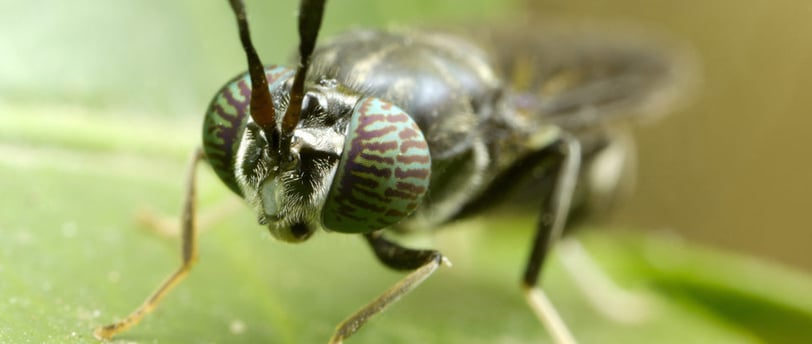Black soldier fly (BSF) farming presents a sustainable solution to various environmental challenges.
Medhat gad
10/17/20241 min read


Black soldier fly (BSF) farming presents a sustainable solution to various environmental challenges.
BSF larvae are highly efficient at converting organic waste, such as food scraps and livestock manure, into valuable byproducts. This process significantly reduces waste volume and contributes to nutrient recycling. The larvae produce high-quality protein feed and organic fertilizer, promoting circular economy principles and minimizing the environmental impact of waste management. Additionally, BSF farming can effectively reduce greenhouse gas emissions, particularly methane and nitrous oxide, compared to traditional composting methods. The larvae's presence in manure treatment systems helps to lower methane emissions, a potent greenhouse gas. Furthermore, BSF larvae can significantly reduce odors associated with decomposing organic waste, making waste management more environmentally friendly. The larvae also offer a sustainable alternative to traditional protein sources like fishmeal and soybean meal, which have higher environmental footprints. By incorporating BSF larvae into livestock feed, farmers can reduce their reliance on conventional feed sources and promote more sustainable agricultural practices. Finally, the residual material from BSF larval digestion, known as frass, is a valuable organic fertilizer that can enhance soil health and crop yields. Overall, black soldier fly farming provides a promising approach for sustainable waste management and agricultural production, offering a range of environmental benefits.
Sustainability
Transforming waste into sustainable protein solutions daily.
Innovation
Impact
+1(438)-927-5905
© 2022. All rights reserved.
info@canadacleantechs.com
